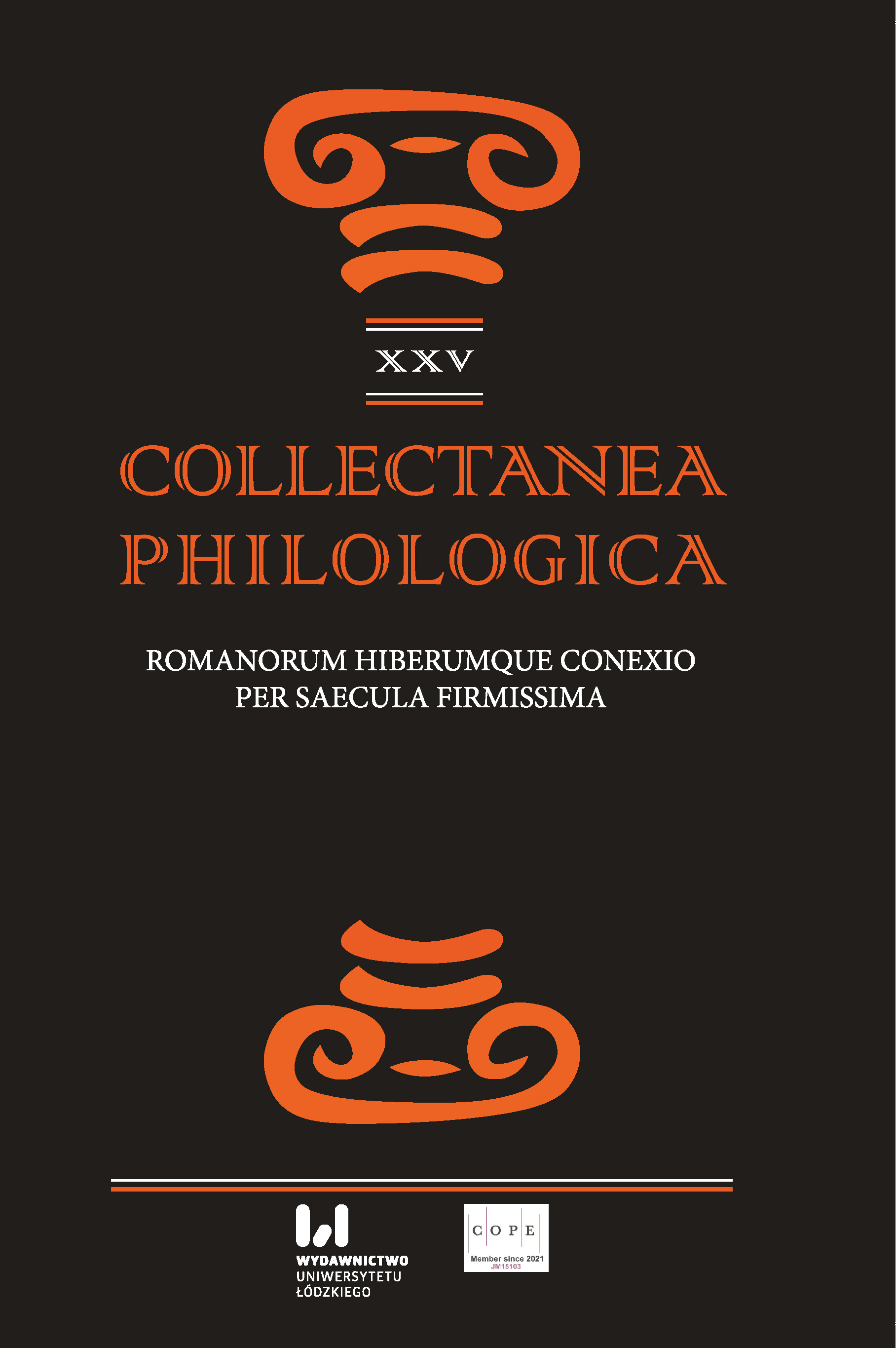Lucius Annaeus Seneca – Ungrateful Son of the Spanish Land
DOI:
https://doi.org/10.18778/1733-0319.25.01Keywords:
Spanishness, Seneca, reminiscences, transnationalityAbstract
The author of this article discusses the question to what extent Lucius Annaeus Seneca – born in Hispania, and today exceptionally venerated in this country as a precursor of the “Spanish” mentality – felt he belonged to this land, and to what extent his feelings towards it were expressed in his writings. An analysis of his creative output leads to the conclusion that he felt little affection for the land of Hispania, since in his writings there are almost no references to it, and perhaps the only trace of his connection with his native country is his youthful epigram Ad Cordubam, in which, however, he shows more warmth towards himself than towards the city. The perceived lack of any more significant declarations of “Spanish” nationality, however, does not so much testify to his pettiness as to his stoic distance from the ethnic and political barriers that divide the community of mankind that constitutes a whole for him.
References
Baldwin, O. (2020). „A Spaniard in essence: Seneca and the Spanish Volksgeist”. International Journal of the Classical Tradition 28. 1–18. 13 August 2020. https://doi.org/10.1007/s12138-020-00571-2
Google Scholar
DOI: https://doi.org/10.1007/s12138-020-00571-2
Grimal, P. (1994). Seneka. Przeł. J.R. Kaczyński. Warszawa: PIW.
Google Scholar
Jachimowicz, L. (2004, wyd. II). Seneka. Warszawa: Wiedza Powszechna.
Google Scholar
Jagłowski, M. (2002). „Specyficzne cechy filozofii hiszpańskiej”. Annales Universitatis Mariae Curie-Skłodowska 27 (10 - sectio I). 183–195.
Google Scholar
Krawczuk, A. (2001). „Niemoralny moralista Seneka”. Polityka 15. 88–90.
Google Scholar
Kruszyńska, K. (2016). „Wokół hiszpańskiej mitologizacji Seneki”. Przegląd Filozoficzny – Nowa Seria 2016 (2). 479–487.
Google Scholar
Lucius Annaeus Seneca. (1900). Minor Dialogs Together with the Dialog „On Clemency”. Translated by Aubrey Stewart. Bohn’s Classical Library Edition; London, George Bell and Sons. Scanned and digitized by Google from a copy maintained by the University of Virginia. https://en.wikisource.org/wiki/Of_Consolation:_To_Helvia (7.05.2022).
Google Scholar
Lucjusz Anneusz Seneka. (1829). Lucii Annaei Senecae opera omnia quae supersunt. F. Ern. Runkopf (ed.). Vol. IV. Augustae Taurinorum.
Google Scholar
Przychocki, G. (1946). Styl tragedii Anneusza Seneki. Kraków: Polska Akademia Umiejętności – Archiwum Filologiczne.
Google Scholar
Tolan, J.V. (2007). „Średniowiecze a kształtowanie się hiszpańskiej tożsamości – rekonkwista w hiszpańskiej historiografii XIX i XX wieku”. Przeł. D. Leśniewska. Przegląd Zachodni (1). 77–97.
Google Scholar
Downloads
Published
How to Cite
Issue
Section
License

This work is licensed under a Creative Commons Attribution-NonCommercial-NoDerivatives 4.0 International License.












